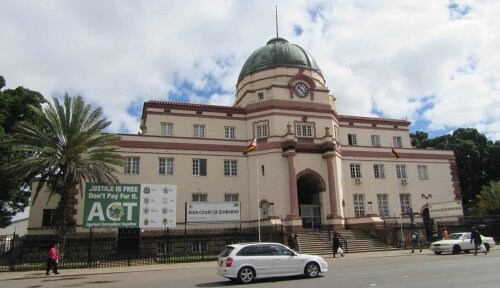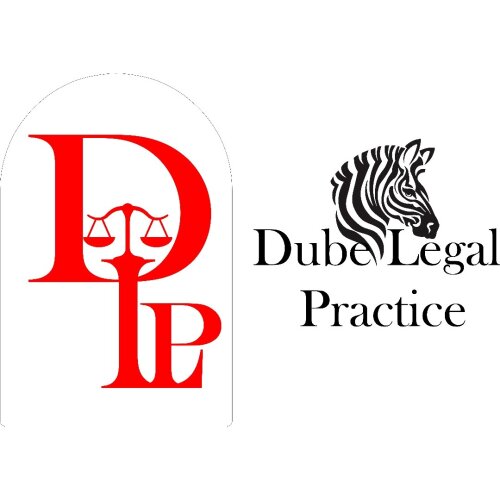Best Constitutional Law Lawyers in Zimbabwe
Share your needs with us, get contacted by law firms.
Free. Takes 2 min.
Or refine your search by selecting a city:
List of the best lawyers in Zimbabwe
About Constitutional Law in Zimbabwe
Constitutional law in Zimbabwe outlines the legal foundation for the establishment and organization of the government, the distribution of powers, and the fundamental rights and freedoms of individuals. It is anchored in the Constitution of Zimbabwe, adopted in 2013. This document serves as the supreme law of the land, meaning that any law or conduct inconsistent with it is considered invalid. The Constitution enshrines various rights, including civil, political, and socio-economic rights, and establishes the function and structure of government institutions.
Why You May Need a Lawyer
There are several situations where individuals might require legal help in the field of constitutional law. These include:
- Disputes regarding violations of constitutional rights, such as unlawful detention, restrictions on freedom of speech, or discrimination.
- Challenging the constitutionality of existing or proposed legislation.
- Legal guidance during public interest litigation concerning environmental rights or social justice issues.
- Understanding the limitations and responsibilities of government authorities, particularly in matters of power abuse or corruption.
Local Laws Overview
The Constitution of Zimbabwe encompasses several key aspects that are pertinent to constitutional law:
- **Bill of Rights**: The Constitution includes a comprehensive Bill of Rights, protecting civil liberties like freedom of association, assembly, and religion.
- **Separation of Powers**: Constitutional law delineates the powers and responsibilities among the executive, legislative, and judicial branches to prevent abuses and ensure accountability.
- **Judicial Review**: Courts have the power to review and nullify any legislation or executive action that is deemed unconstitutional.
- **Customary Laws**: The Constitution acknowledges customary laws, provided they do not infringe on fundamental rights.
- **Decentralization**: It promotes devolution and decentralization to enhance participatory governance and local accountability.
Frequently Asked Questions
What is the significance of the Constitution of Zimbabwe?
The Constitution serves as the supreme law, establishing the legal framework for governance, protecting rights, and guiding democratic principles.
How can one challenge a constitutional violation?
Individuals can file a legal petition in the Constitutional Court, seeking remedies for breaches or disputes related to constitutional rights.
What rights are protected under Zimbabwean constitutional law?
The Constitution protects a plethora of rights, including but not limited to freedom of speech, equality before the law, and protection against arbitrary detention.
Can customary laws override constitutional rights?
No, customary laws cannot contravene the protections offered by the constitutionally enshrined rights and freedoms.
What role do the courts play in constitutional law in Zimbabwe?
Courts interpret and enforce the Constitution, ensuring that laws and actions conform to its provisions and uphold individual rights.
What remedies are available for constitutional violations?
Remedies can include the annulment of unconstitutional statutes, court injunctions, and compensation for affected individuals or parties.
How does one address issues of maladministration by government officials?
Legal action can be taken in the form of reports to the Zimbabwe Human Rights Commission or filing a case in the courts.
Is legal representation necessary for constitutional law cases?
While individuals may represent themselves in some matters, legal representation is advised due to the complexity of constitutional litigation.
How are constitutional amendments made in Zimbabwe?
Amendments require a two-thirds majority in Parliament, reflecting the need for broad consensus and public interest in changes.
Where can I find the full text of the Constitution of Zimbabwe?
The full text is available from government publications, libraries, and online databases managed by legal or government institutions.
Additional Resources
- **Zimbabwe Human Rights Commission**: An independent body that promotes and protects human rights in Zimbabwe.
- **Zimbabwe Lawyers for Human Rights (ZLHR)**: An organization providing legal assistance and advocating for human rights issues.
- **Law Society of Zimbabwe**: A professional body representing legal practitioners and offering a directory to find qualified constitutional lawyers.
- **Legal Resources Foundation**: Provides community education on legal rights and offers legal advice services.
Next Steps
If you require legal assistance in constitutional law, consider the following steps:
- **Consult a Lawyer**: Reach out to a law firm or lawyer specializing in constitutional law to discuss your case and legal options.
- **Gather Documentation**: Prepare all relevant documents, including any evidence of rights violations or correspondences with authorities.
- **Educate Yourself**: Understand your rights and the basics of the legal process through available resources and self-help guides.
- **Engage with Support Networks**: Connect with organizations and support groups dedicated to civil rights and constitutional issues.
Lawzana helps you find the best lawyers and law firms in Zimbabwe through a curated and pre-screened list of qualified legal professionals. Our platform offers rankings and detailed profiles of attorneys and law firms, allowing you to compare based on practice areas, including Constitutional Law, experience, and client feedback.
Each profile includes a description of the firm's areas of practice, client reviews, team members and partners, year of establishment, spoken languages, office locations, contact information, social media presence, and any published articles or resources. Most firms on our platform speak English and are experienced in both local and international legal matters.
Get a quote from top-rated law firms in Zimbabwe — quickly, securely, and without unnecessary hassle.
Disclaimer:
The information provided on this page is for general informational purposes only and does not constitute legal advice. While we strive to ensure the accuracy and relevance of the content, legal information may change over time, and interpretations of the law can vary. You should always consult with a qualified legal professional for advice specific to your situation.
We disclaim all liability for actions taken or not taken based on the content of this page. If you believe any information is incorrect or outdated, please contact us, and we will review and update it where appropriate.
Browse constitutional law law firms by city in Zimbabwe
Refine your search by selecting a city.















